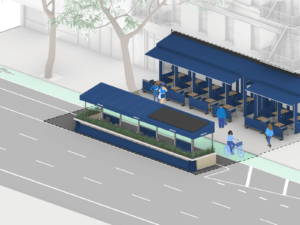Although much has been written about the various ways New York’s Metropolitan Transportation Authority (MTA) will shut down, cut service, and potentially fall into a death spiral if the agency doesn’t address its $16 billion deficit, catastrophe has seemingly been averted for another year.
Assuming $4 billion in forthcoming federal aid and a more hospitable response from the Biden administration, the MTA backed down from passing an austerity budget that would have cut subway and bus service by 40 percent, gotten rid of unlimited MetroCards, and limited commuter rail service. Instead, on December 16, the agency passed a stop-gap budget based on the news that a second, $900 billion COVID stimulus deal was close to finalization, including $15 billion for struggling mass transportation systems around the country.
Although the worst of the worst was avoided, even with $4 billion in aid the agency will need at least another $7.3 billion to keep it solvent through 2024. With tough budget discussions delayed to fiscal year 2022 for the time being, what changes are coming to North America’s largest transportation network?
Fare hikes, for one. According to the New York Times, pre-pandemic fare and toll increases of 4 percent will move ahead as originally planned and take effect in spring 2021, but without the proposed $3 cost for purchasing new MetroCards.
Service on the Long Island Rail Road (LIRR) will be trimmed back too, to about 75-to-80 percent of pre-pandemic levels as daily ridership remains at only about 25 percent of what it was before March (now averaging about 75,000 riders per weekday). LIRR service already remains at 90 of what it was, and Metro-North Railroad service, which is only seeing about 20 percent of pre-COVID ridership, is operating at 68 percent capacity.
The agency declined to enact stringent cutbacks to bus and subway service, though, with Governor Cuomo’s decision to shut down overnight service in May to allocate more time for deep cleaning and no estimate of when it will return, New York’s famously 24/7 transportation system has already been hampered for the foreseeable future.
One potential bright spot for the beleaguered MTA? With the nomination of Pete Buttigieg as transportation secretary, congestion pricing, which the agency expects to raise $1 billion annually, could finally move forward after being reportedly slow rolled by the Trump administration.











